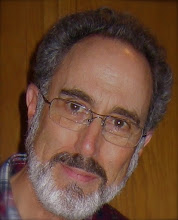 |
| Tehran traffic in 1970 and it only got worse by 1978 (Samuel Coulbourn photo) |
Stone-faced soldiers were posted at all the entrances and exits. Passengers on our flight were directed to Customs, where agents, with soldiers looking over their shoulders, made a cursory check of passports and shot records. I was surprised when the agent didn’t my check bags, but just waved me through dismissively.
I was in Tehran to participate in something called “Peace Log;” a program sponsored by the US Military Assistance Advisory Group (MAAG)1 to train the Royal Iranian Air Force in the basics of logistics management. Peace Log was managed by Detachment 30 out of the San Antonio Air Logistics Center.
I was a Lieutenant Colonel in the Air Force assigned to the Air Force Institute of Technology (AFIT), School of Systems and Logistics. I was 40 years-old, married, with two children; boys 13 and 12. I was scheduled to be gone for 5 weeks; the second time in my tour at AFIT that I would be on temporary duty (TDY) for that long.
The other three members of my team had arrived in Tehran several days ahead of me, because I had been delayed in my departure from AFIT. I had been instructed to wear civilian clothes, and to wait for pick up by a MAAG detachment driver or members of my team. A “lessons learned” that we’d been provided advised strongly against any single individual from the team taking a taxi from the airport.
I went into the baggage claim area, and then to main terminal of the airport, searching out a driver from the detachment, or members of my team. Failing to find one, I went outside the airport to check the arriving and departing cars. I was approached immediately by a very scruffy-looking Iranian man asking me in Farsi if I needed a taxi. I answered in Farsi and English, shook my head, and finally just turned away from the persistent man, only to be approached a few minutes later by another man offering taxi service, and then another. I’d been instructed to wait for a team car, so I waited, constantly harassed by taxi drivers, or wanna-be taxi drivers, or kidnappers, or whatever the hell these insistent men were. I worried about the soldiers who were posted along the airport drop off zone becoming suspicious about my “loitering.”
I waited 45 minutes, becoming more and more concerned about where my ride was. I went to the terminal counter and asked to use a phone to call the MAAG duty officer, but was told phone service was down. Just as I was about to risk accepting a taxi ride, I spotted several tall guys wearing checkered sports coats loading their luggage into station wagon. I sidled over and heard them speaking American English. It turned out they were going to the same hotel where I’d be staying my first night -- the Evin -- and I was able to hitch a ride with them. They were US Navy personnel who were to be consultants to the Royal Iranian Navy.
We had an animated conversation as we drove out of the airport and on to the main highway into the city, discussing our various military assistance and technical advisory missions, but conversation petered out when we saw the large military presence along the highway. We passed by the Shahyad Monument, which had been built in 1971 to celebrate the rule of the Pahlavi Dynasty. Sandbags and artillery were positioned all around the the floodlit, soaring, white stone monument. Army personnel carriers were parked there, and soldiers with machine guns slung over their shoulders stood about watching the traffic flow by. This scene was repeated at strategic intersections and buildings along our route to the hotel. That was probably the point when I realized that the situation in Iran was more tenuous then our State Department had led us to believe.
Traffic became heavy and chaotic as we neared the outskirts of Tehran. I wrote in my notebook, “Iranian drivers are crazy -- absolutely nuts!” There seemed to be no rules; speed limits appeared to be determined only by how fast a car would go. The right of way was determined by who got there first. Cutting in front of other drivers was done as a matter of pride, often by veering into the opposing traffic lane and racing the on-rushing cars to that moving space in front of a line of cars all observing the anything goes culture of driving in Tehran. One taxi driver I rode with later in my tour turned onto a one way street, and when I yelled at him and pointed to the sign, he turned his car 360 degrees, and backed down the street, presumably in the belief that backing down a one way street in opposition to traffic was consistent with the spirit of the law.
 |
| Recent photo of Evin Hotel in Tehran |
I joined the team at the bar where we had a couple of beers, talked briefly about the “disturbances” in Tehran and across the country, made our plans for the next day, and retired to our rooms.
Despite feeling exhausted, I had trouble getting to sleep. I thought about where I was, how things would go, whether I'd have the opportunity to get away and see more of the country, whether our "students" would speak sufficient English to grasp our lectures, and what cultural problems we'd confront. I finally got to sleep telling myself that everything would work out. They did, but in ways I hadn't imagined.


No comments:
Post a Comment
Comment moderation request has been emailed to the blog author.